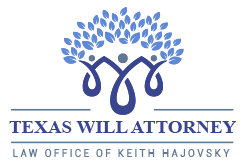Whether you have a will or not, you are most likely to have both probate and non-probate assets. In fact, I like to tell clients there are basically two “buckets” of assets – one for probate assets and and one for non-probate assets. Probate assets pass through your will if you have one. If you die without a will, i.e. you die intestate, then your probate assets pass per very strict rules determined by state law. When this  happens the probate process is usually more expensive and more, sometimes much more, time consuming. Likewise, your assets may not go to the people you wanted them to.
happens the probate process is usually more expensive and more, sometimes much more, time consuming. Likewise, your assets may not go to the people you wanted them to.
Non-probate assets do not pass per the terms of your will, assuming you have one, nor do they pass to your heirs using the strict state laws for intestacy. Non-probate assets pass per the terms of a beneficiary form or some other document. A trust is a good example of a document that can control non-probate assets. Oftentimes, but not always, bank accounts have a signed beneficiary form which says where the remaining assets should go upon one’s death. If so, these accounts with beneficiary forms are also typical non-probate assets. The same goes for life insurance policies and investment accounts which often have designated beneficiaries. If there is a designated beneficiary other than the estate, then those assets are also non-probate assets.
So when you think about your estate plan, you really need to consider both types or “buckets” of assets. Very often people think that if they have a will and/or a trust that their estate will be taken care of and distributed per their wishes in those specific documents. But if there are beneficiary forms on various accounts that don’t say what you want them to say as far as your overall plan, then the outcome of the distribution of your estate could end up VERY differently than what you had wanted.
I get calls more often than I’d like where I hear that very significant assets end up going to an unintended person or persons just because a beneficiary form wasn’t properly updated. And when this happens, outside of proving some sort of fraudulent activity which is extremely difficult to do, there is nothing that can be done after the person has died. The stories that I hear are often heartbreaking, so make sure your beneficiary forms say what you want and need them to say.


